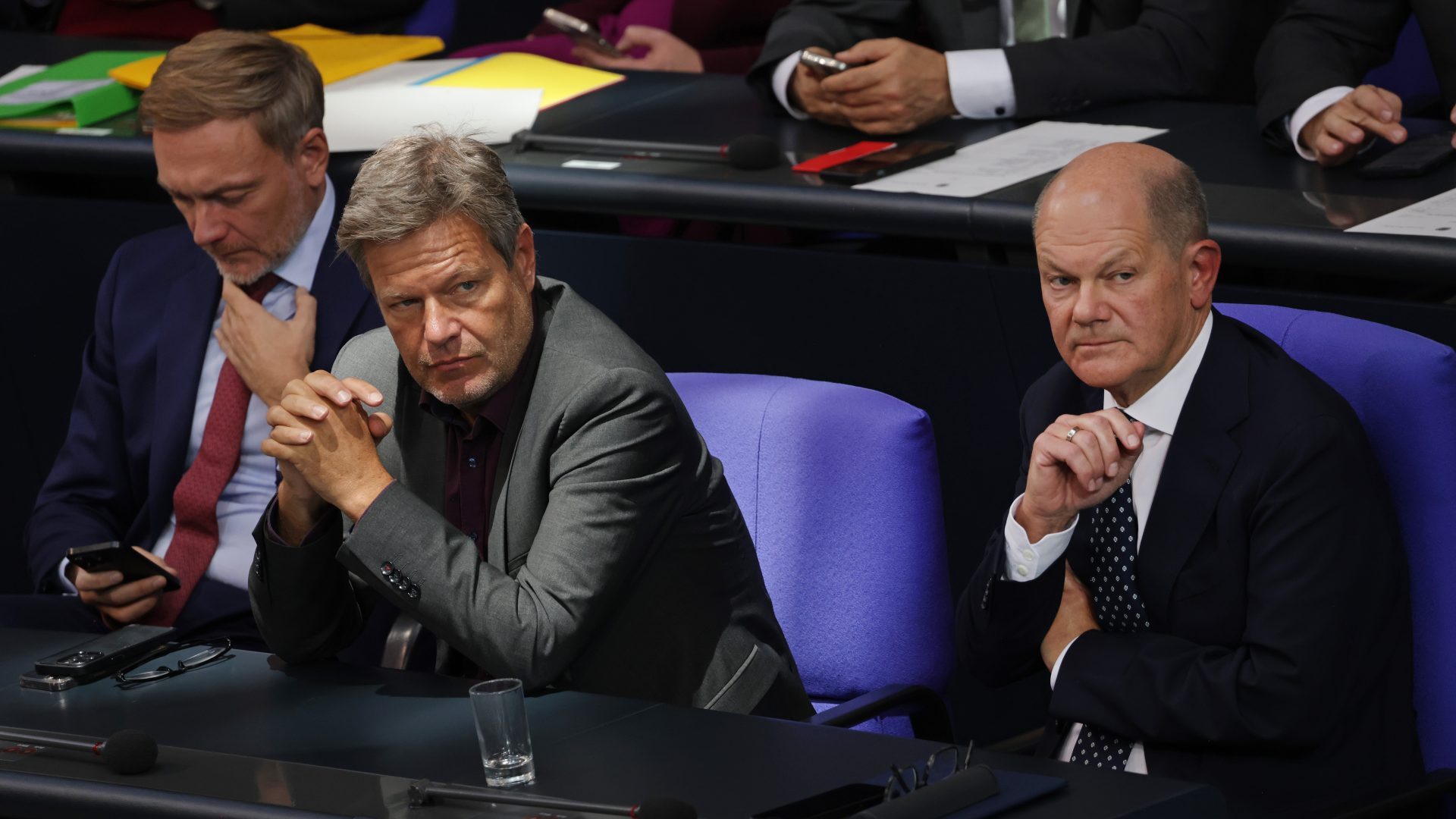On Wednesday, at precisely 20:08, Germany’s least popular relationship bit the dust. What a relief.
In fairness, the fact that a governing coalition that contained on the one hand green ideals and left-wing state-driven instincts and on the other, the Free Democratic Party’s “private first, state second” doctrine managed to last for three years deserves respect. If only they hadn’t tackled so many problems just by shovelling money at them… because in the end, the funds ran out.
For days, no one in the Berlin bubble had believed it could last and the break-up came down to money. The SPD and the Greens were demanding a “debt override”, which is a euphemism for more debt. The finance minister and chairman of the FDP Christian Lindner stuck to the debt-brake, which is laid down in the German constitution. According to Lindner, the chancellor, Olaf Scholz, tried to bully him into breaking his oath of office.
The personal fallout is quite the spectacle. For weeks Lindner had been searching for a way out of the “triangle of madness”. His leaked 18-page paper calling for an economic U-turn was pure provocation. He proposed radically reducing social welfare expenditure, which is going through the roof due to a string of government miscalculations. This was a direct attack on the SPD.
The Greens, who are delusional about Germany’s ability to become a carbon-neutral overachiever, felt insulted by Lindner’s call for a slower, less radical shift to a climate-friendly economy.
For context, our government was aiming to go green five years earlier than all other EU member states. Germany faces its second consecutive year of recession, however, and the shift away from fossil fuels means that many German industries are losing their competitive advantage. The Greens and Scholz had promised a thriving green economy – instead, there’s an incessant news flow of thousands of blue-collar jobs being cut, company bankruptcies and negative growth.
In what should be the last of many crisis meetings, Lindner proposed snap elections – Scholz’s reaction was to sack him. Standing in the Bundeskanzleramt, Scholz gave a campaign speech in the brightest, self-congratulatory terms, lashing out at his former treasurer, whom he called “small-minded,” “ideological” and “selfish”.
“I dismissed the Federal Finance Minister to prevent harm for the German people,” he said. The SPD and Greens accuse the FDP of acting irresponsibly by crashing a coalition with Trump looming. But consider how seriously the future US president would have taken a German government that can’t even agree on a budget…
Scholz once said that whoever ordered leadership from him, would get it. The order was placed three years ago, but in fact, the package was never delivered. So now there’s the big bang. Which could be destructively creative. The next steps: Scholz plans for a vote of confidence in the Bundestag on January 15. If he loses, which he will, elections are likely in March. A CDU meme saying “März? Merz!” is already making the rounds, alluding to CDU chairman Friedrich Merz, Germany’s likely next chancellor.
Meanwhile, Green frontman Robert Habeck urged Germans on X “not to doubt democracy”. No worries here. What people do doubt, though, is the timeline. The parties are already in campaign mode, so why drag it out until Spring?
One reason: the CDU and their Bavarian sister party CSU are already quite advanced in preparing for early elections, candidate lists etc. The SPD and Greens will have to scramble through the Christmas season to get their campaigns up to speed.
For the FDP, who withdrew all four ministers from cabinet (although one has gone rogue), the next election will be existential. So far, they heave made a strong “party-pooper” brand for themselves, vetoing what they felt was economic sacrilege. But will voters believe they’re capable of more than saying “no”? And will the CDU, their natural ally, throw them a lifeline?
The Greens on the other hand, even though they’ve enjoyed more power than ever before, have catapulted themselves right back into their old “eco-party” role. They wanted everything all at once, with too little regard for what businesses and the public could handle.
And Scholz? He is the fourth SPD chancellor after Willy Brandt, Gerhard Schröder and Helmut Schmidt who will leave office prematurely. SPD officials say he’s set to run as their chancellor candidate again. He won’t win (the SPD is currently at 15% in the polls). But there is a strong chance the SPD will be part of the next German government again, as the CDU stands by its decision not to work with the AfD.












